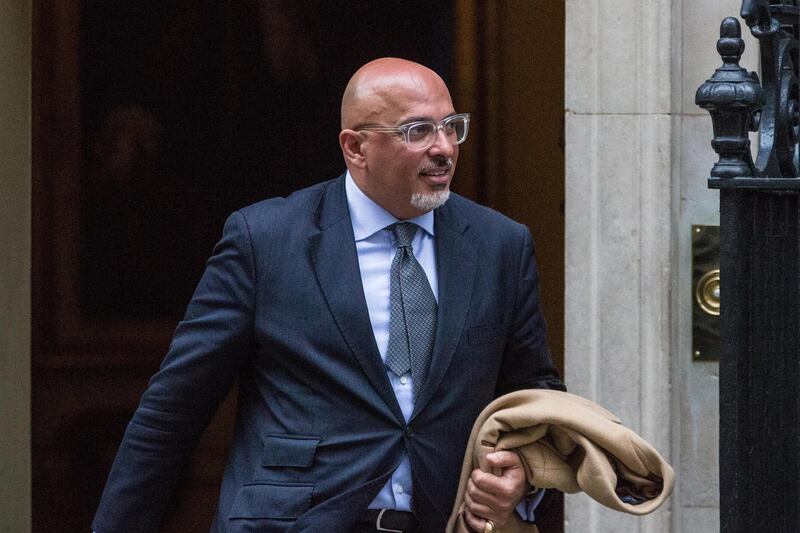Iraqi-born British MP Nadhim Zahawi has stood down from his role at troubled Kurdish oil firm, Gulf Keystone, as he takes on new ministerial responsibilities.
The Conservative politician’s involvement at Gulf Keystone has been mired in controversy as it emerged he earned almost £30,000 (Dh148,970) a month for his role – more than the average Briton makes in an entire year.
The hefty compensation provoked anger among Gulf Keystone’s long-suffering shareholders, who have seen their investment in the company all but wiped out.
Once a darling of the stock market, the shares have collapsed by more than 99 per cent since 2012 as the firm battled with challenging geopolitics and high debt.
Media reports over Christmas had said that Mr Zahawi was expected to resign from the company in the new year.
And on Wednesday, a company spokesperson confirmed to The National that the MP has left his position as chief strategy officer for the firm, a role he had held since mid-2015.
The move came as Mr Zahawi was appointed an education minister in this week’s government reshuffle.
His parliamentary assistant told The National that in addition to leaving Gulf Keystone, "any other outside interests will of course be resigned to allow him to serve as a minister".
_______________
Read more:
[ British MP pockets almost Dh150,000 a month from troubled Kurdish oil firm ]
[ Kurdistan-based oil firms continue to receive payments for crude sales ]
_______________
Speaking to Channel 4 after his appointment to the Department for Education, Mr Zahawi declared: “I am pleased to take a pay cut and do this job.”
Investors and market commentators took a more cynical view, pointing out the huge sums of money he had earned over his 2 years as a part-time advisor at the firm.
Others welcomed the news that he is standing down from Gulf Keystone, but warned that it would add insult to injury if he walks away with a handsome severance package.
"Resigning, yes – and so he should," Justin Urquhart Stewart, co-founder of Seven Investment Management, told The National.
“But I would watch any announcement [on pay] very closely indeed,” he added. “For someone who is merely operating at an arm’s length, what exactly would he be entitled to? The answer is: normally, not a lot. Severance pay for a director really shouldn’t be very significant at all.”
Given what Gulf Keystone’s shareholders have endured, Mr Urquhart Stewart said that any sizeable payout to Mr Zahawi should be challenged.
“These days you have to be so careful of people’s packages like this – how much they put in their pension scheme, what are their share options… and also future options as well,” he said. “Some of these deals are really quite imaginative.”
“But if there’s something very significant about it, I think investors should challenge it,” he said.
Mr Urquhart Stewart also urged Mr Zahawi to come clean about what exactly his past dealings with the company have been, given his new ministerial position.
“As a minister, he needs to be even more transparent and to reassure people that whatever’s happened before has now been sorted out and that there’s no conflict of interest,” he said. “I haven’t seen a statement from him about that at all.”
Mr Zahawi took the post at Gulf Keystone in 2015 earning north of £20,000 a month.
Last January, he received a bonus payment of just over a quarter of a million pounds, while in the summer, his base salary went up to £29,643 a month – more than £350,000 a year.
In the MPs’ register, Mr Zahawi stated he spends “between eight and 21 hours per week” in his role at Gulf Keystone. This, too, has raised eyebrows given the high amount of compensation he receives for so little time.
Mr Zahawi, 50, was born in Baghdad to Kurdish parents and moved to England as a child with his family to escape Saddam Hussein’s regime. Gulf Keystone brought him on board due to his expertise and local contacts in the region.
Until October, he was also a non-executive director of recruitment company SThree which paid him £3,333 a month – or £40,000 a year – for doing seven hours a month.





